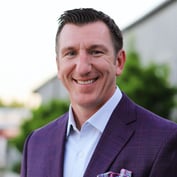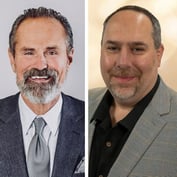An iPhone 6 alarm is ringing in the distance. A groggy hand turns it off and proceeds to check Facebook, Twitter, SnapChat and, finally, email. After a complete catch-up with technology, the young person is up and ready to tackle the world.
While the scenario above is not that uncommon for many young professionals nowadays, does it seem different from your typical morning routine? Welcome to an insight into the world of a millennial, a digital demographic existing where the walls are painted in bright colors — or there are no walls, as almost everything is done online.
But, who are millennials, really?
While there’s no exact date that pinpoints the beginning and end of this generation, the Pew Research Center defines them as those being born between 1981 and 1997, making them between the ages of 18 and 34 today.
Some historical events that have marked this generation include: 9/11, the Great Recession, a record amount of student loan debt, a lack of available employment opportunities, the surging cost of living, a technological revolution and the postponement of starting families.
These events have shaped millennials’ lifestyles. This generation has learned to adapt to a fast-changing environment. The circumstances of their lives have made them savers, just when the bulk of this demographic began graduating college. This has helped them learn how to reinvent themselves in the face of adversity.
Technology = a new world
Quick adoption of new technologies has helped open a whole new world of opportunities for millennials that previous generations didn’t have, such as being able to sell their hand-made products online to anyone in the world with an Internet connection, or being able to build an app and launch their start-up business with it.
Rheir purchasing power and consumer profiles have changed, too, because of the advances and availability of technology. Forbes estimates that millennials amount to approximately $200 billion in annual buying power.
At their fingertips lies a world of endless buying possibilities with millions of sources of information. Millennials become research experts before making any final decision about purchases. All of these facts are pushing the insurance and financial industries to change the way that they operate.
And the millennials of today, young and ambitious, with a thirst for knowledge and looking for ways to help those around them, are already becoming your clients. If you aren’t reaching out to this generation, your business might be in trouble soon.
A fast change
With the average age of insurance professionals pegged at 59 years old, according to McKinsey & Co., it’s no surprise that there’s a big — and sudden — demographic change happening in the industry right now. “By 2020, the insurance industry will be hiring around 400,000 people,” said Lindsey Pollak, The Hartford’s millennial workplace expert. “This is happening because of the retirement of baby boomers and the growth of the industry.”
“The problem is, only about 5 percent of millennial students in college say they are interested in studying a field related to insurance,” adds Pollak, who penned a book on the subject titled “Becoming the Boss.”
“It’s an industry image problem,” she adds. It’s an obstacle that companies like The Hartford, organizations like Life Happens, and even independent advisors in the field are battling to change with programs for educating the public and highlighting the positives of the industry.
Millennials, meet the insurance industry
According to The Hartford’s 2014 Millennial Leadership Survey, the number one thing millennials want is training and development. The second is coaching and mentoring, and that’s where well-seasoned advisors come in.
Rather than showcasing how much money one can make in this industry, the desire to grow and help the world is more important to millennials. “The industry under-markets itself, it’s humble, it’s modest,” Pollak added. “You don’t see people boasting about it like in Silicon Valley. The challenge lies in how to present this industry as innovative, market it to millennials, show how great it can be and how we are helping people. It’s a forward-thinking industry.”








 August 27, 2015 at 07:39 AM
August 27, 2015 at 07:39 AM










